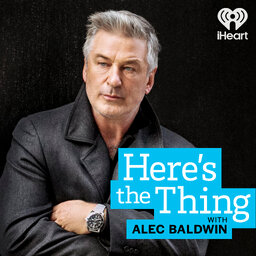Andrew Berman - Summer Staff Picks
It’s time for the final episode in our Summer Staff Picks series, highlighting favorite conversations from the Here’s The Thing archives. This week, we revisit Alec Baldwin’s conversation with Andrew Berman. He has been called one of the most powerful people in New York real estate, but not because he's a deep-pocketed developer. Berman is the Executive Director of Village Preservation, where he advocates for the protection and conservation of historically important buildings and sites in Greenwich Village, the East Village and NoHo, including the cultural touchstone The Stonewall Inn. Alec first spoke with Berman in 2015 regarding his background and what led him to this field, how the changing zoning laws affect his work, and his wish for the city’s future. Berman joined Alec again earlier this summer for an update on his work since last they spoke, including the recent wins that Village Preservation has achieved, the ways the city has changed since covid and the challenges involved in solving the city’s affordable housing crisis.
In 1 playlist(s)
Here's The Thing with Alec Baldwin
Award-winning actor Alec Baldwin takes listeners into the lives of artists, policy makers and perfor…Social links
Follow podcast
Recent clips

The Phonographic Memory of Marc Shaiman
50:43

Here's The Thing: Trailer
01:41

E Jean Carroll on Writing and Resilience
35:20
 Here's The Thing with Alec Baldwin
Here's The Thing with Alec Baldwin